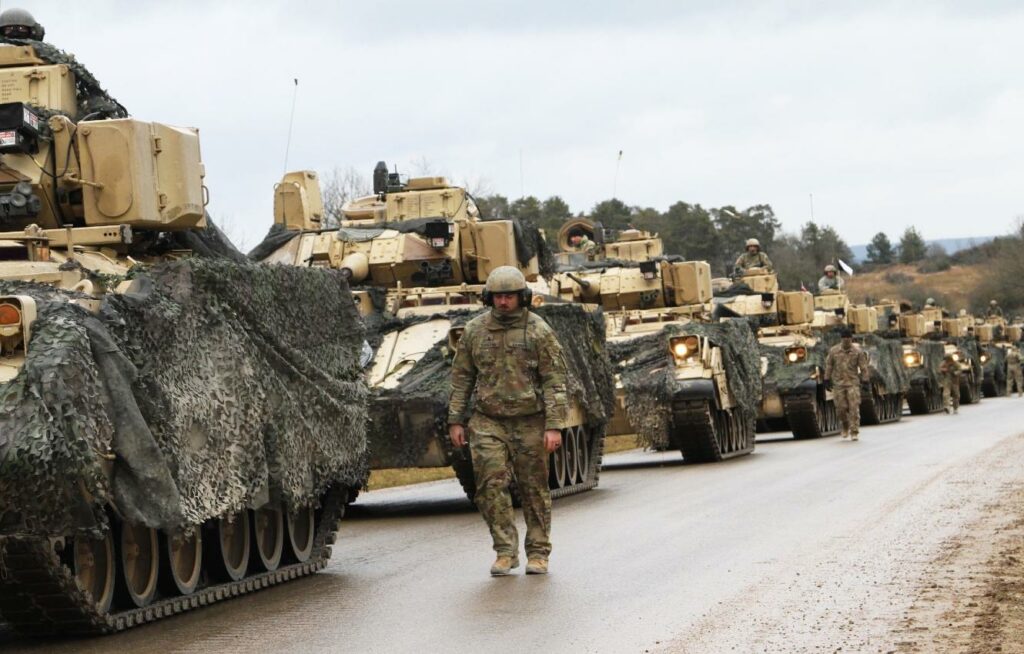In the heart of the Middle East, the presence of the US military in Syria stands as a complex and contentious issue. As the United States grapples with the decision of whether to maintain its military presence or withdraw altogether, the consequences of each choice loom large on the horizon. The delicate balance between intervention and isolation carries substantial risks on both sides of the spectrum, making this a decision of critical importance in the ever-evolving landscape of global politics.
The Importance of US Military Presence in Syria
While the presence of US military forces in Syria undeniably carries substantial risks, it is crucial to consider the serious consequences of a complete withdrawal. Without US military presence in Syria, the region could descend into further chaos, allowing terrorist groups to regain strength and posing a threat to global security.
Furthermore, US military presence in Syria provides stability and support for our allies in the region, such as the Kurdish forces who have been instrumental in the fight against ISIS. This helps maintain a balance of power and influence in the region, preventing other hostile actors from gaining control. Withdrawal could lead to increased aggression from adversaries like Russia and Iran, further destabilizing the region.
Potential Risks of Maintaining US Troops in Syria
American military presence in Syria poses significant risks, both politically and strategically. Maintaining troops in the region increases the potential for military conflicts and escalations with other countries involved in the conflict, such as Russia and Iran. Additionally, the ongoing presence of US troops in Syria can perpetuate instability and prolong the conflict, leading to further loss of life and resources.
On the other hand, a complete withdrawal of US troops from Syria also carries substantial risks. It could create a power vacuum that could be exploited by terrorist organizations like ISIS, leading to a resurgence of violence and extremism in the region. Furthermore, a withdrawal could damage the credibility and reputation of the US as a reliable ally, potentially weakening its influence in the Middle East and beyond.
Implications of a Complete Withdrawal from Syria
While the presence of US military forces in Syria undoubtedly carries substantial risks, a complete withdrawal could also have significant implications. One major concern is the potential resurgence of ISIS in the region, as the group could exploit the power vacuum left by the absence of US troops. This could not only destabilize Syria but also pose a threat to global security.
Additionally, a complete withdrawal from Syria could lead to increased influence from other actors in the region, such as Russia and Iran. This could further complicate the already complex geopolitical dynamics in the Middle East and potentially exacerbate ongoing conflicts. It is essential for policymakers to carefully weigh the risks and benefits of a complete withdrawal to ensure that it does not inadvertently create more instability and conflict in the region.
Strategies for Mitigating Risks in US Military Involvement in Syria
When considering , it is essential to carefully evaluate the potential consequences of both maintaining a presence and completely withdrawing. One approach could involve:
- Increased Diplomatic Efforts: Engage in diplomatic discussions with regional players to find a peaceful resolution and establish clear objectives for military involvement.
- Continued Intelligence Sharing: Maintain intelligence-sharing partnerships with allies to monitor and address emerging threats in the region.
- Humanitarian Support: Provide humanitarian assistance to alleviate the suffering of civilians affected by the conflict.
Additionally, establishing a clear exit strategy and timeline for US military involvement in Syria could help reduce risks and ensure a smooth transition when the time comes.
The Way Forward
the decision surrounding the US military presence in Syria is a complex and multifaceted issue that requires careful consideration. While there are undoubtedly risks associated with both maintaining troops in the region and withdrawing completely, finding a balanced approach that prioritizes stability and security is crucial. It is essential for policymakers to weigh the potential consequences of their actions and work towards a solution that minimizes harm and maximizes positive outcomes for both the Syrian people and the broader international community. Only through thoughtful analysis and strategic decision-making can we hope to navigate the intricate challenges of the Syrian conflict effectively.
